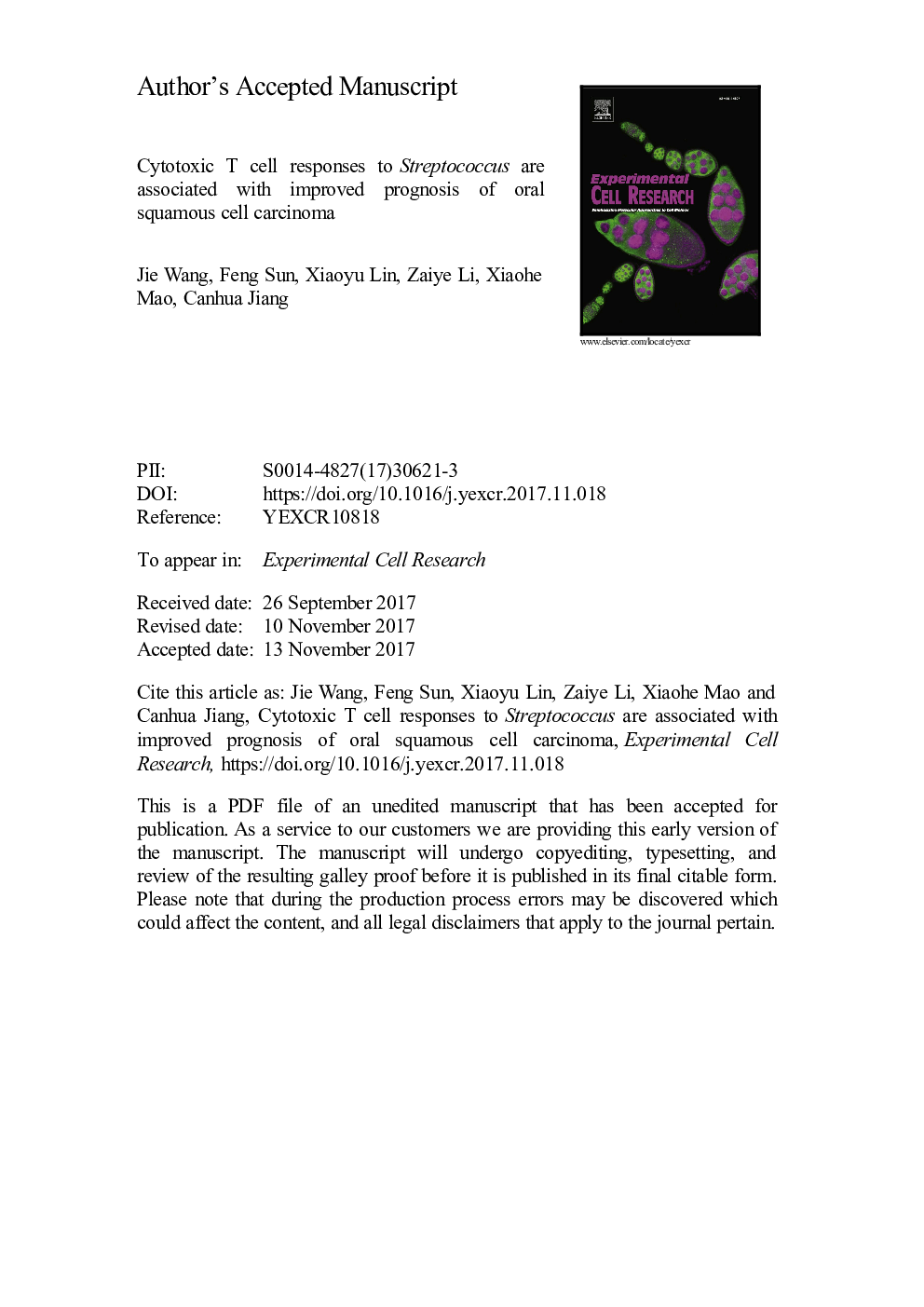| Article ID | Journal | Published Year | Pages | File Type |
|---|---|---|---|---|
| 8451719 | Experimental Cell Research | 2018 | 23 Pages |
Abstract
Several species of Streptococcus, such as S. salivarius, S. mitis, and S. anginosus, are found to extensively colonize the oral cavity and the upper respiratory tract, and have been shown to increase in patients with oral squamous cell carcinoma (OSCC). Accumulating evidence have revealed that commensal bacteria are involved in antitumor immunity via T cell-mediated mechanisms, but the role of Streptococcus enrichment in OSCC is yet unclear. In this study, we stimulated peripheral blood mononuclear cells from non-cancer controls (NCs) and OSCC patients with S. salivarius, S. mitis, and S. anginosus. We observed that compared to NC subjects, OSCC patients at earlier stages had higher frequencies of granzyme B-expressing CD8 T cells for all Streptococcus species tested, while OSCC patients at more advanced stages had higher frequencies of granzyme B-expressing CD8 T cells for S. anginosus but not other Streptococcus species. In OSCC patients, the Streptococcus-reactive CD8 T cells presented significantly lower levels of PD-1 and TIM-3 expression than Streptococcus-nonreactive CD8 T cells. The clinical outcomes of OSCC patients in our cohort were tracked for 24 months after the resection of the primary tumor. In patients that did not present tumor recurrence, the frequencies of S. salivarius-reactive and S. mitis-reactive CD8 T cells were significantly higher than that in patients that developed recurrent tumor. Furthermore, in patients with tumor recurrence, the duration between primary tumor resection and tumor recurrence was positively associated with the frequencies of S. salivarius-reactive and S. anginosus-reactive CD8 T cells. Together, we demonstrated that Streptococcus-reactive CD8 T cell responses might contribute to antitumor immunity in OSCC patients.
Related Topics
Life Sciences
Biochemistry, Genetics and Molecular Biology
Cancer Research
Authors
Jie Wang, Feng Sun, Xiaoyu Lin, Zaiye Li, Xiaohe Mao, Canhua Jiang,
